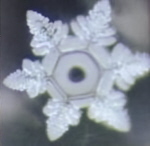St.George Russian Orthodox Church
The Holy water
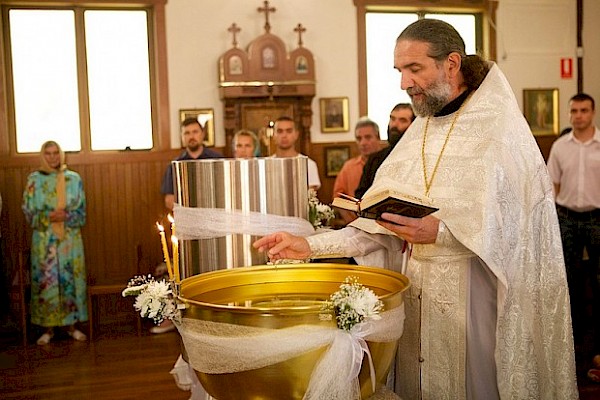
About Holy Water
On Theophany, that is, the Day of the Lord’s Baptism, every year a great miracle is performed. The Holy Spirit, coming down upon the water, changes its natural properties. It becomes incorrupt, that is it does not spoil, remains transparent and fresh for many years, receives the grace to heal illnesses, to drive away demons and every evil power, to preserve people and their dwellings from every danger, to sanctify various objects whether for church or home use. Therefore Orthodox Christians with reverence drink Holy Water — a great Agiasma (holy thing), as the Greeks call it.
One should always have at home enough Theophany water so that it will last the whole year, and make use of it at every need; in cases of illness, leaving on a journey, whenever one is upset, students when going to examinations. They do well who daily, before eating any kind of food, drink a little Holy Water. It strengthens the powers of our soul — if it is done, of course, with prayer and reverence, and one does not merely expect from it a mechanical result.
Every priest should take care to bless a sufficient quantity of water for his church, so that it will be on hand for the course of the whole year for every need and to be given out to those who ask for it; and parishioners should provide for themselves at Theophany with Holy Water for the whole year and even so that it can be kept for future years.
St. John of Shanghai
Source: www.orthochristian.com
HOLY WATER MIRACLE
The true nature of water has its destiny in the salvation of man and the world. The blessing of waters doesn’t «make bad water good». It restores the water to its original state. The prayer at the blessing of water causes the revelation of the true 'nature' and 'destiny' of water, and thus of the world. By being restored through the blessing to its proper function water becomes again a means of communion with God. Christ in His baptism purified the nature of the waters. He came to redeem not only human beings but, through them, the entire material created world.
Here’s water from different sources usually used by people. Take a close look at the water structure.
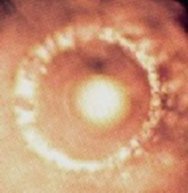
Tap water
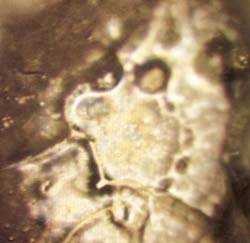
Lake water
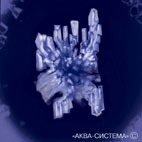
Bottled water
During the blessing of Holy Water a great miracle is performed. The Holy Spirit, coming down upon the water, changes its natural properties. It again becomes incorrupt, not spoiling, remaining transparent and fresh for a long time. This Holy Water receives the grace to heal illnesses, to drive away demons and every evil power, to preserve people and their dwellings from danger, to sanctify various objects whether for church or home use. Therefore, Orthodox Christians with reverence drink Holy Water — a great Agiasma (holy thing), as the Greeks call it.
The presence of Holy Spirit invoked through reading of special prayers totally changes the water structure itself. Here’s crystals of water from the same sources (as shown above) after it was blessed.
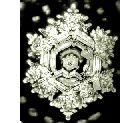
Tap water after blessing
Lake water after blessing
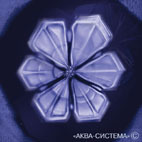
Bottled water after blessing
HOLY WATER HISTORY
Among Eastern Orthodox Christians, Holy Water is used frequently in rites of blessing and exorcism, and the water for baptism is always sanctified with a special blessing.
Throughout the centuries, there have been many springs of water that have been believed by members of the Orthodox Church to be miraculous. Some still flow to this day, such as the one at Pochaev Lavra in Ukraine, and the Life-Giving Spring of the Theotokos in Constantinople (commemorated annually with the blessing of Holy Water on Bright Friday).
Although Eastern Orthodox do not normally bless themselves with Holy Water upon entering a church like Catholics do, a quantity of Holy Water is typically kept in a font placed in the church, where it is available for anyone who would like to take some of it home with them. It is customary for Orthodox to drink Holy Water, to use it in cooking and to sprinkle their houses with it.
Often, when objects are blessed in the church the blessing is completed by a triple sprinkling with Holy Water using the words, «This (name of item) is blessed by the sprinkling of this Holy Water, in the name of the Father, and of the Son, and of the Holy Spirit.»
Holy Water is often sprinkled on items or people when they are blessed outside of the church building, as part of the prayers of blessing. For instance, in Alaska, the fishing boats are sprinkled with Holy Water at the start of the fishing season as the priest prays for the crews' safety and success. Also, cars and homes are blessed with Holy Water as a way of invoking God’s blessing and protection.
Orthodox Christians most often bless themselves with Holy Water by drinking it. It is traditional to keep a quantity of it at home, and many Orthodox Christians will drink a small amount daily with their morning prayers. It may also be used for informal blessings when no clergy are present. For example, parents might bless their children with Holy Water before they leave the house for school or play. It is not unusual for pious Orthodox Christians to put a little Holy Water in their food as they cook their meals. It is also often taken with prayer in times of distress or temptation.
The use of Holy Water is based on the Baptism of Jesus by John the Baptist in the River Jordan, and the Orthodox interpretation of this event. In their view, John’s baptism was a baptism of repentance, and the people came to have their sins washed away by the water. Since Jesus had no sin, but was God incarnate, his baptism had the effect not of washing away Jesus' sins, but of blessing the water, making it holy-and with it all of creation, so that it may be used fully for its original created purpose to be an instrument of life.
Jesus' baptism is commemorated in the Eastern Orthodox churches at the Feast of Theophany (literally «manifestation of God») on January 6 (for those Orthodox Christians who use the Julian Calendar, January 6 falls on the Gregorian Calendar date of January 19). At the Vespers of this feast, a font of Holy Water is typically blessed in the church, to provide holy water for the parish’s use.
In the following weeks, the priest typically visits the homes of the members of the parish and leads prayers of blessing for their families, homes (and even pets), sprinkling them with Holy Water. Again, this practice is meant to visibly represent God’s sanctifying work in all parts of the people’s lives.
Every family should have Holy Water at home, and make use of it at every need: in cases of illness, leaving on a journey, whenever one is upset, students prior to examinations, etc. People who drink a little Holy Water daily, before eating any kind of food, usually do well. It strengthens the powers of our soul-if it is done with prayer and reverence, and one does not merely expect a mechanical result from it.
Source: St Mary’s Holy Assumption
Russian Orthodox Church

